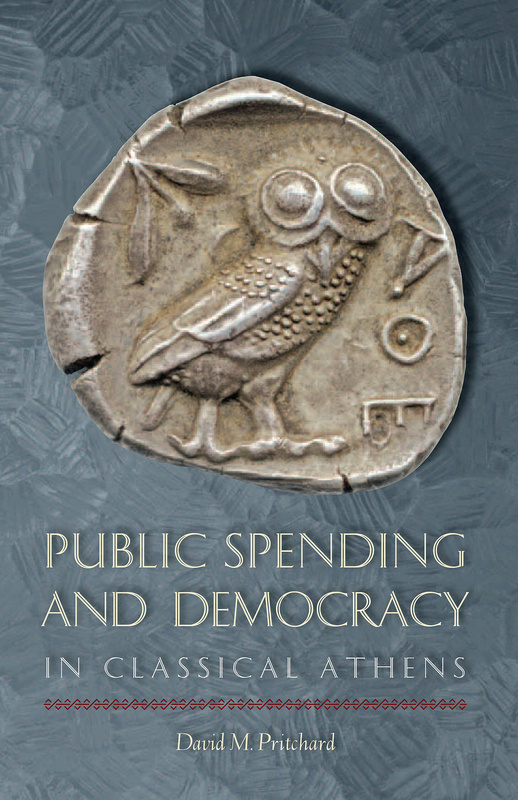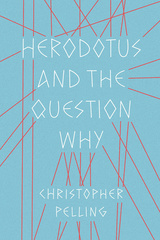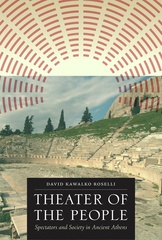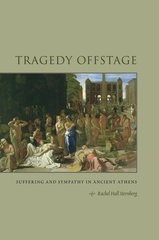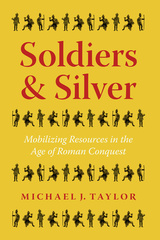Our shopping cart is currently down. To place an order, please contact our distributor, UTP Distribution, directly at utpbooks@utpress.utoronto.ca.
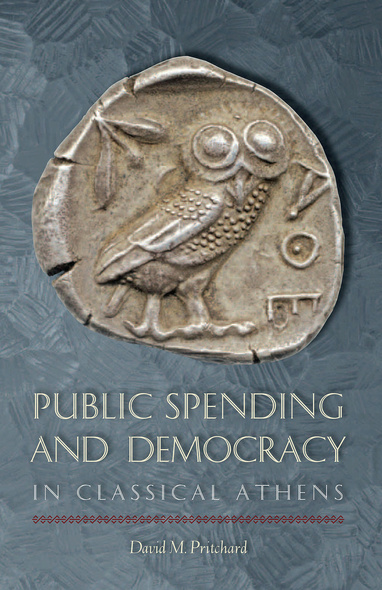
In his On the Glory of Athens, Plutarch complained that the Athenian people spent more on the production of dramatic festivals and “the misfortunes of Medeas and Electras than they did on maintaining their empire and fighting for their liberty against the Persians.” This view of the Athenians’ misplaced priorities became orthodoxy with the publication of August Böckh’s 1817 book Die Staatshaushaltung der Athener [The Public Economy of Athens], which criticized the classical Athenian dēmos for spending more on festivals than on wars and for levying unjust taxes to pay for their bloated government. But were the Athenians’ priorities really as misplaced as ancient and modern historians believed?
Drawing on lines of evidence not available in Böckh’s time, Public Spending and Democracy in Classical Athens calculates the real costs of religion, politics, and war to settle the long-standing debate about what the ancient Athenians valued most highly. David M. Pritchard explains that, in Athenian democracy, voters had full control over public spending. When they voted for a bill, they always knew its cost and how much they normally spent on such bills. Therefore, the sums they chose to spend on festivals, politics, and the armed forces reflected the order of the priorities that they had set for their state. By calculating these sums, Pritchard convincingly demonstrates that it was not religion or politics but war that was the overriding priority of the Athenian people.
Pritchard has written an important book on Athenian public finances. More interesting than the debates he claims to have settled, however, are the new debates that it can be expected to open, not only about how much the Athenians actually spent, but also about the principles and processes which shaped their financial decision-making.
Pritchard’s consideration of . . . diverse evidence – both literary and epigraphic, and dating largely from the 420s, 370s and 330s – allows him not merely to confirm . . . that the military was far and away the Athenians’ most expensive public undertaking, but also to develop a clear model of Athenian public expenditures that ancient historians will find useful both in its own right and as a catalyst for future study.
There should be no doubt that the work is an extremely valuable contribution to the literature on the political economy of classical Athens. Future scholarship on this topic will find Pritchard's book impossible to ignore.
Which cost the more, or the most, which did Athenian democracy of classical times usually prioritize: religious festivals, warmaking, or everyday politics? In this characteristically high-octane and provocative book, David Pritchard aims to settle these fundamental and now almost two-centuries-old scholarly questions.
This is undoubtedly an important and most useful book. Using careful calculations, applying clearly formulated methods, and exploiting all available ancient evidence and a vast range of modern scholarship, Pritchard corrects old and firmly established misconceptions in clarifying the spending priorities of the classical Athenian democracy. His demonstration that the Athenians spent many times more money for war than they did for political and religious issues is entirely compelling. His book fills a long-standing gap, and it does so quite brilliantly.
To discover the real motives and values behind the representations of Classical Athenians, one must ‘follow the money.’ For the first time in two hundred years. David Pritchard throws open the ancient democracy’s ledgers to reveal where Athens’ real priorities lay. This wide-ranging investigation will bring profit to anyone who aspires to understand Athenian politics, mentality, or culture.
- List of Illustrations
- List of Tables
- List of Abbreviations
- Preface
- 1. Public-Spending Debates
- Festivals and Wars
- Democracy
- The Period of Eighty Years for Comparing Costs
- The Democratic Control of Public Spending
- The Synopsis of the Book
- 2. The Cost of Festivals
- The Cost of the Great Panathenaea
- The Relative Scale of the Rest of the Festival Program
- The Full Cost of Festivals
- 3. The Cost of Democracy
- Jurors
- Councilors
- Assemblygoers
- Magistrates
- Undersecretaries
- Public Slaves
- Gold Crowns
- Settling the Böckh-Jones Debate
- 4. The Cost of War
- Public Spending on the Armed Forces in the 420s
- Military Spending in the Rest of the Peloponnesian War
- The Full Cost of the Armed Forces in the 370s
- Military Spending in the 460s
- 5. Conclusion: Public-Spending Priorities
- Notes
- Works Cited
- Index of Sources
- General Index

